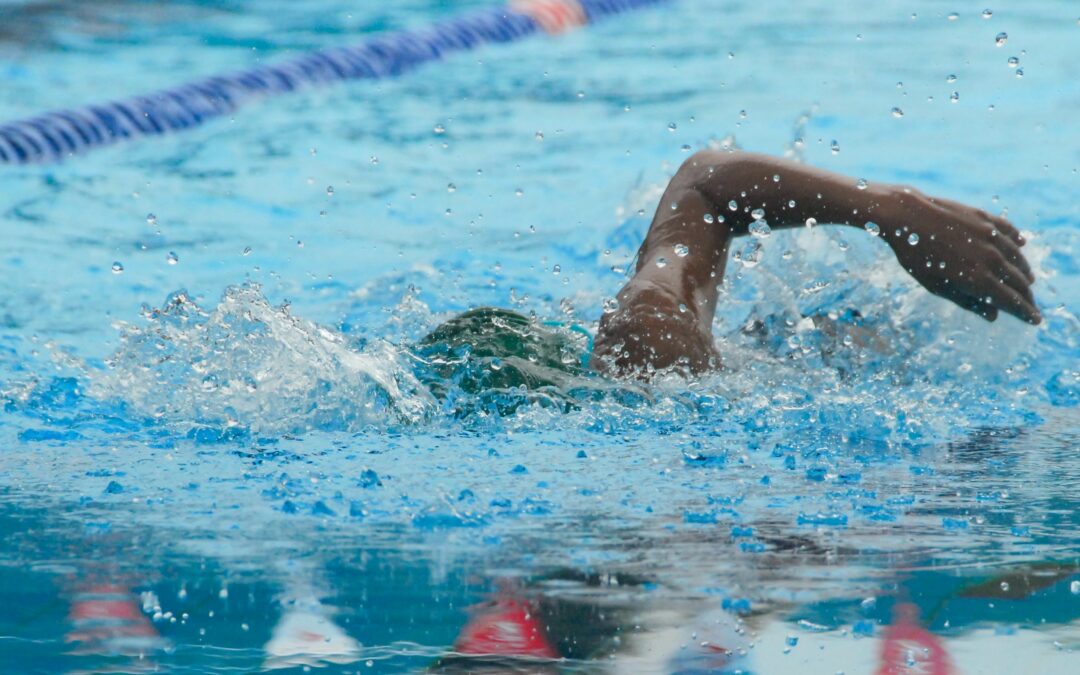If you’ve read our other blog about athletes and eating disorders, you know that being an athlete puts you at a higher risk for developing an eating disorder. Athletes that participate in aesthetic and weight-class sports are known to have an even greater risk of developing an eating disorder. Examples of such sports are gymnastics, cheerleading, figure skating, wrestling, bodybuilding, cross country, and dance, just to name a few. These sports tend to put a greater emphasis on outward appearance and weight is talked about more often than in other sports. Even if you do not struggle with your relationship with food or body, these conversations can be triggering and very unhelpful. Keep reading to learn about disordered eating in athletes: 4 tips to fuel appropriately.
If you are an athlete that participates in any of these sports (or any sport), it does not mean that you are definitely going to develop an eating disorder. While the more intense focus on appearance and aesthetics can make navigating food and body image a little bit trickier. These sports do not “cause” eating disorders. Triggers and risk factors for eating disorders exist in various sports. And there are steps you can take to mitigate these risk factors and work through those triggers. Read on the learn about these triggers, and some ways to work through them.
Athletes and Negative Eating Behaviors
Athletes tend to be competitive people. Competition is a big part of sports, whether it’s a team sport or an individual sport. It makes sense that athletes want to be the best they can be. And why they might go to all ends of the earth to try to achieve this. In some cases, while these actions might be well-intentioned, they can backfire and lead to the development of an eating disorder. Oftentimes, behaviors that are common in the sports world are actually pretty disordered. Just because something is common, doesn’t mean it is normal or healthy. These behaviors can include, but are not limited to, the following:
- Restricting food intake before body composition testing or weigh-ins
- Eating less food while you are injured or on rest days
- Intentionally pursuing weight loss in hopes to improve performance
- Training on an empty stomach
- Working out outside of team-led workouts
- Cutting out certain foods or food groups
- Using weight as a direct indicator of your performance
- Trying to compete in a lower weight class that is not right for your body
- Skipping meals or snacks
- Only drinking water and avoiding sports drinks
If these are behaviors you engage in or have tried in the past and thought they were healthy for you. It is not your fault. These behaviors are sometimes encouraged or praised by coaches or team support staff. And it happens in some sports more often than others. You might feel like this is the only way. Or maybe these behaviors feel unhelpful, but you aren’t sure what to do differently. Keep reading to learn about ways to fuel appropriately for your sport, manage some of the unhelpful messages given in sport.
1. Compete in a Weight Class That Suits Your Body Here and Now
By trying to intentionally lose weight and change your body, you are doing yourself and your performance a disservice. If you need to restrict food or engage in disordered eating behaviors to stay at a certain weight or get to a certain weight, it is not the weight your body is meant to be at. The number on a scale simply tells you about your relationship with gravity. It says nothing about your performance, training, drive, talents, skills, etc. Without the focus of changing your body, you will have more time to actually train- to work on techniques, skills, and strategies needed to compete and perform at your best.
2. Avoid Cutting Out Specific Foods or Food Groups
Contrary to popular belief, when we restrict ourselves of food or food groups, it does not stop us from thinking about them or craving them. In fact, it does the opposite. Imagine you had a puppy. You put them in a room with 100 toys, but put 1 toy on the top shelf and told them they could not touch it. What would they do? Probably sit and stare at that 1 toy on the shelf, despite the 99 other ones at their disposal.
The same thing happens with people and food, the more we try to restrict food, the more we think about it and the more we want it. Restricting foods can also lead to binge eating. This is not “wrong”, but your body’s natural response is to make sure you’re fed and have what you need. The best way to limit this preoccupation with food is to allow yourself unconditional permission to eat all foods. All foods fit and your body knows exactly what to do with them. Are you still unsure what it looks like to not restrict foods? We can help! Please reach out to us to receive support from one of our wonderful eating disorder dietitians!
3. Train AND Rest Appropriately
As an athlete, there is no doubt that you are familiar with the importance of training. And you’re right. Training is important. But rest is equally as important. If your body is not getting adequate time to rest and recover from training, you will not reap all the benefits of the training you’re doing. Your muscles recover while you rest. Without enough rest, you are at a higher risk for overtraining and low energy availability. An important part of rest and recovery is adequate nutrition.
4. Eat Enough and Eat Consistently
As an athlete, your training looks a lot different from the average person. This means you need to fuel differently than the average person. Every athlete’s nutrition needs are different and individualized. What your teammate needs to eat is going to be different than what you need to eat. The foundation of fueling for performance is eating enough, and eating throughout the day. Athletes need at least 3 meals and 3 snacks per day. And benefit from eating every 3-4 hours or so. And yes, even on rest days! Fun fact: your body still needs the same baseline amount of food on rest days as it does on training days- food is important in recovery!
Food is not inherently good or bad. Rather than focusing on specific foods and what they will do for your health/performance. Try switching your focus to variety. All foods serve a purpose and your body knows exactly what to do with them. By incorporating a variety of foods, including your favorite foods, you will be able to meet your nutrient needs. And will be less preoccupied with thoughts about food, allowing you to focus more on other things. If you need more guidance on your individual nutrition needs, please seek the support of an individual dietitian/sports dietitian. Courage to Nourish is happy to help!
Closing Thoughts on Disordered Eating in Athletes
Thank you for reading our blog on Disordered Eating in Athletes: 4 Tips to Fuel Appropriately. If you are an athlete (or not) and any of this resonated with you, it is not your fault, and you are not alone. You are worthy and deserving of support. If you have more questions and think you could benefit from more individualized support, please reach out to us to receive support from one of our wonderful eating disorder dietitians!
Athletes: Get Help with Disordered Eating
Courage to Nourish is a group of eating disorder specialized dietitians. We have in person locations in Alexandria, Virginia, Columbia, Maryland. and College Park, Maryland. We offer virtual services across the state of Virginia, Washington DC, Pennsylvania, and Colorado. We offer individual nutrition therapy. As well as support groups. We would love to guide you in building a better relationship with food.
Contact us for more information. And to schedule a discovery call. Also, sign up for our client or clinician newsletter!
Take one of our eating disorder quizzes:

Kathryn is a weight-inclusive, anti-diet eating disorder dietitian at Courage to Nourish. She specializes in working with adolescents and families, athletes, and individuals recovering from ARFID. Kathryn sees clients in person at the Columbia, Maryland office and virtually throughout Virginia, Pennsylvania, DC, and Maryland. To schedule a discovery call with Kathryn, click here.

